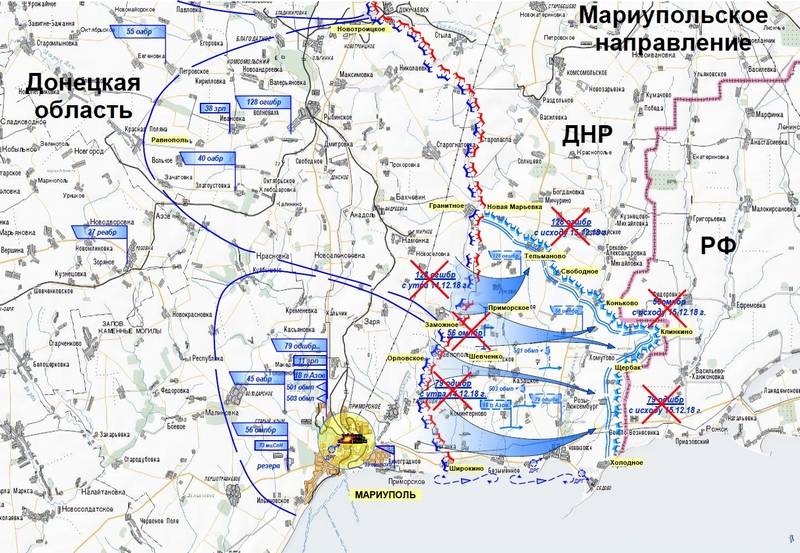With the introduction of the first private military company took about 50 years, and during that time the firm came from small budgets and small staff to gigantic empires, earning up 300 billion a year, says Roman Persiyanov pages “Internet news”. They supply rich countries and companies of military advisers, engineers, technical specialists, guards, bodyguard and, in extreme cases, professional special forces soldiers to fire support.
Since the 2000s, this service was used by almost all leading countries of the world, and, as the experience of modern warfare, States are increasingly more profitable to pay the hired soldiers, than to announce the mobilization and risk angering citizens.

The reasons for the popularity
When in 1962 year in Yemen civil war began, World War II veteran and citizen of the United Kingdom David Stirling saw for themselves and their colleagues an opportunity. Then he was known as the founder of the Special Airborne Service UK (SAS) and was considered a professional soldier with good connections. Together with colleagues, he founded the first private military company (PMC) Watchguard International, became the tool for the UK during the war in Yemen.
The company offered to train soldiers, deliver provisions, ensure the protection of the home front. In other words, Do all military spheres other than in direct participation in hostilities. British authorities liked the idea, and although the results of the war were mixed, Watchguard International has done its job.
Basically the company's services were used by British allies, including the US. Many prison for Vietnamese and logistical support during the Vietnam War built PMC. Building, air, creating logistical infrastructure - these services have become the most profitable for the military companies in the first years after the onset of. Due to the success of the Stirling his colleagues began to open similar PMCs. They are mainly engaged in the liberation of hostages or counseling.
During the boom of poaching in South Africa in the 1980s, the authorities hired Watchguard International for the battle with the killers of animals. Then there were new to many countries, PMCs, and therefore their activities are loyal. Contract signed on poachers killing even the International Federation of Wildlife.
However, for the development of private military companies are not required loyalty, and war. That is why in the 1990s,, when the fall of the Soviet Union ended the Cold War, it was the epoch of PMCs.
In the time of the confrontation of the Soviet Union and the United States in each country have been dozens of bases in different countries. Balkans, Baltic, Africa, Near East, Asia - each of the two superpowers to keep troops in the countries of these regions.
They controlled stability and prevented radical movements activated. With the end of the Cold War emerged from the ruins of the Soviet Union, Russia has left many of its bases around the world, including in unstable Africa. triumphantly, US military also weakened grip.
The authorities of both countries to save money on this solution. But for states, where for many years the USSR and the United States artificially supported world, decision superpowers caused serious damage. National authorities, lost strong allies, They appealed to the PMC services, to ensure the stability in the state.
TO 2002 by private military companies working in 42 countries, and participated in the 700 armed conflicts. During the Gulf War, 65 percent of all transport troops and supplies were in the military companies. All logistical support provided by Saudi National Guard mercenaries. The fight went with experts military companies. PMC's success in the war led to their popularity in Saudi Arabia.
Even then, competition among firms was high. Often the failure of even a single transaction resulted in the termination of the contract with PMC, because the state is always able to find a similar company.
In the 1990s,, British military company GSG operation failed during the civil war in Sierra Leone with the rebels. In the first battle the detachment received heavy losses, and the commander was killed and ritually eaten by rebels. Thereafter c GSG broke the contract.
Contract intercepted a British company SI and later appeared in the center of a scandal. It revealed, that the company has set 35 tons of weapons to Sierra Leone from Bulgaria in spite of the international embargo. During the investigation it became known, that this was done with the filing of the British High Commissioner in Sierra Leone and the US State Department.
AT 1995 year, when the war in Yugoslavia, International Organization for the Protection of Human Rights and the UN military companies have paid more than a billion dollars for demining in the country. Money invested in the operation of the United States, Germany, Japan, Sweden, Britain and France.
Such high demand has accelerated the already rapid growth of military companies. Dozens of soldiers were thrown in the army and went to private firms, where their professional and great military experience was valued much higher. This trend has been beneficial to both parties.
For the government, the Western democracies are much cheaper to hire a private company, you deploy military mobilization and convince, eg, Congress to approve the use of regular troops.
PMC soldiers, Unlike military fighters, composed exclusively of professionals with experience in special operations. Since this is a private entity, they do not pay benefits, pensions and do not pay insurance. Loss of military experts from private companies not included in the statistics and not create such a resonance, the mortality rate in the regular forces.
Work principles
After several major scandals PMCs during the war in Iraq and Afghanistan, employees of PMCs increasingly became associated with ruthless mercenaries. However, private military companies - it is much more than a large-scale phenomenon, than the company for the production of fighting for people's money.
Large PMC - this whole business structure with branches, offices, office workers and accountants, often controlled by the government. Companies working only with recognized states or rich diamond mining companies, gas or oil.
It's not snobbery, just barely average US company will be able to afford to hire a professional soldier. US companies an average of one day of military specialists receive from 200 to 1000 dollars, if you are close to the combat zone.
For the protection of industrial facilities by paying US PMCs 600 to 6 thousands of dollars per month. The salary depends on the location of the point guard and soldier citizenship. Initial equipment costs employers about a thousand dollars. For comparison - privates and sergeants of the US Army receive up to four thousand dollars a month.
PMC popular with oil companies in the Middle East, and on the west by the military services of the firm usually resort authorities. For example, at 2009 , the US military company DynCorp received for military contracts from the US 915 millions of dollars. The annual budget of three billion dollars to 96% It consisted of payments to US authorities.
This is not a unique case and is not the most well-known, but it reflects the attention, exerted by the US authorities to the military companies. To work within the country, they must obtain a license from the State Department. If the value of the transaction exceeds 50 millions of dollars, the permit considering the US Congress.
Before working in the PMC checks the military Department of Defense. Due to the strong popularity of the companies at the beginning of 2000 s sometimes test took more than a year. During the boom, US Military Companies PMC took only the US and UK citizens. From a legal point of view, it was easier.
Repeatedly checks the department was accused of neglect and bribery. Officers allegedly took money and without scrutiny disapproved soldiers. The UK authorities have not demanded such a thoughtful investigation and took military experts soon, including foreign.
Long and do not fall off a wave of popularity brought PMCs mainly versatility. Not all or even most military companies send military experts to direct fire support.
Profit brings rear logistics, building resources supply routes, soldiers and air cargo, mine clearing, consultation soldiers, construction of barracks and headquarters, protection of objects or persons.
Construction company KBR, often receiving state contracts from the Pentagon, I hired a contractor to lift sunken in 2000 year nuclear submarine K-141 “Kursk”. FROM 2009 the company sends goods to the US military in Afghanistan with the support of “Russian Railways”. For these purposes, KBR has funded the construction of the transit center in Ulyanovsk. the company's total earnings from 2000 by 2012 year - 39,5 billions of dollars.
Providing direct soldiers - this is the most difficult part of the work of PMC is not only a human resources position, but also the legal aspects. Military companies enter into a contract with the insurance companies in the event of injury or death of a soldier. If insurance agents will find at least a few violations in the actions of a soldier, damage to a civilian or non-observance of the route, they refuse to pay the money and go to court.
To be continued
a source: chvk.info












